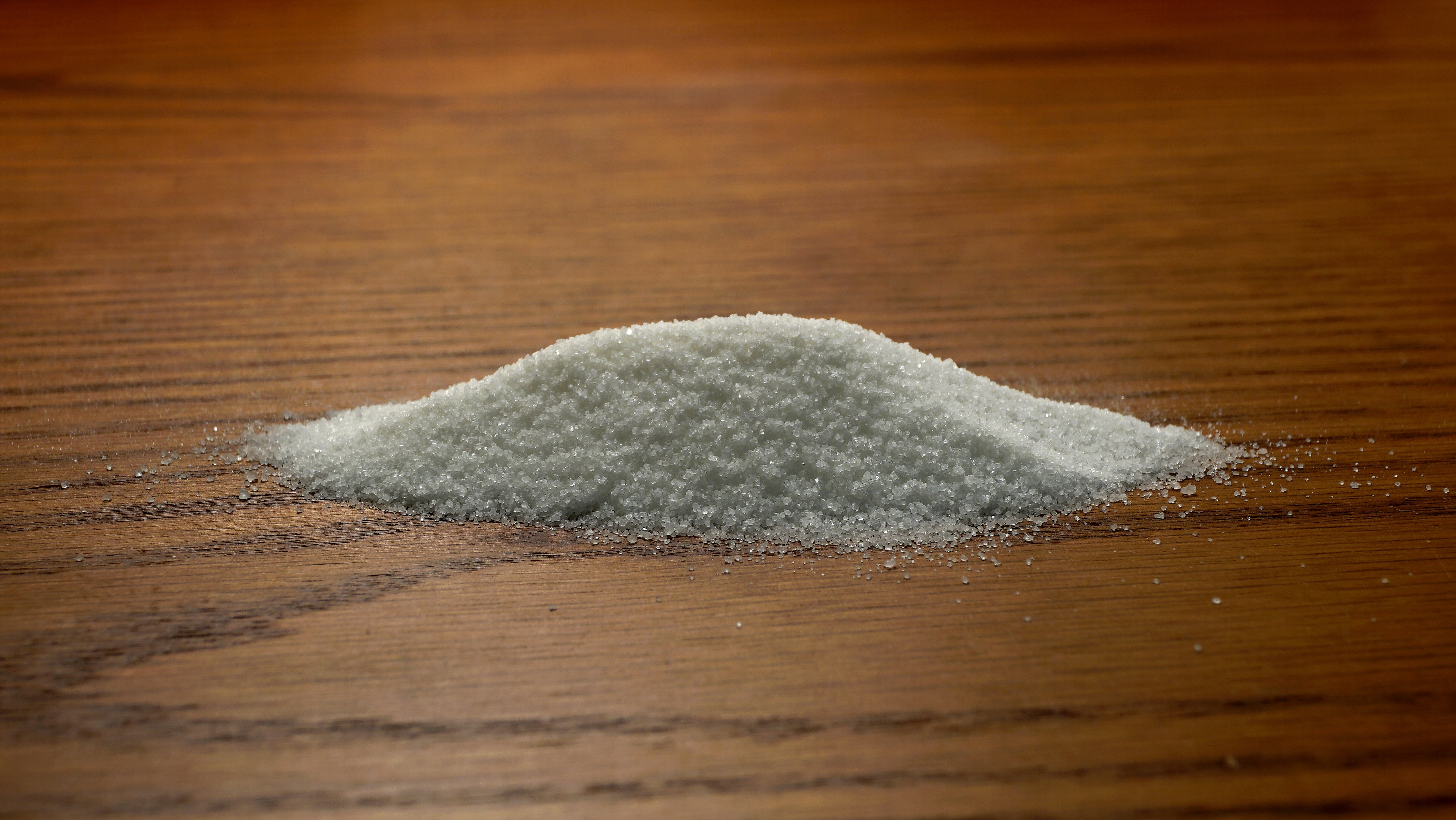What’s Sugar Got to Do with It?
 Why is sugar considered so bad for us; and what does it have to do with chronic illness?
Why is sugar considered so bad for us; and what does it have to do with chronic illness?
It’s not necessarily that sugar is bad. It’s that Americans, in particular, have made it a major food group in daily food consumption. The processing we have subjected sugar to has caused it to be harmful to our systems.
Why are we so drawn to something so harmful? The simple truth is it tastes good. Don’t feel bad. You’re not weak for loving sugar. Studies show that our brains “light up” when we ingest sugar. This reaction is similar to the one that occurs when cocaine is used.
And sugar is in everything! Refined sugar comes from sugar cane or sugar beets, which are processed to extract the sugar. It is typically found as sucrose, which is the combination of glucose and fructose. We use white and brown sugars to sweeten cakes and cookies, coffee, cereal, and even fruit. Food manufacturers add chemically produced sugar, typically high-fructose corn syrup, to foods and beverages, including crackers, flavored yogurt, tomato sauce, and salad dressing. Low-fat foods are the worst offenders, as manufacturers use sugar to add flavor.
 Most of the processed foods we eat add calories and sugar with little nutritional value. In contrast, fruit and unsweetened milk have vitamins and minerals. Milk also has protein and fruit has fiber, both of which keep you feeling full longer.
Most of the processed foods we eat add calories and sugar with little nutritional value. In contrast, fruit and unsweetened milk have vitamins and minerals. Milk also has protein and fruit has fiber, both of which keep you feeling full longer.
Prolonged use of sugars, as well as artificial sweeteners, can lead to chronic illnesses like Type 2 diabetes which can create a domino effect leaving you vulnerable to other illnesses.
Metabolism matters
How the body metabolizes the sugar in fruit and milk differs from how it metabolizes the refined sugar added to processed foods. The body breaks down refined sugar rapidly, causing insulin and blood sugar levels to skyrocket. Because refined sugar is digested quickly, you don’t feel full after you’re done eating, no matter how many calories you have consumed. The fiber in fruit slows down metabolism, as fruit in the gut expands to make you feel full.
But there’s a caveat. Once the sugar passes through the stomach and reaches the small intestine, it doesn’t matter if it came from an apple or a soft drink.
How much sugar is already in your blood will determine how the body uses the sugar. If you already have a lot of sugar in your system, then what you just digested will form either fat or glycogen, the storage form of glucose that’s used for quick energy. It doesn’t matter if it’s junk food or fruit.
According to the American Heart Association, Americans consume an average of 22-30 teaspoons of sugar a day- Yes a day! We eat more refined sugar today than our parents and grandparents did three decades ago, which has resulted in increasing obesity rates among adults and children. Obesity has been associated with certain cancers, including breast, prostate, uterine, colorectal and pancreatic. On the flip side, fruits high in antioxidants—blueberries, blackberries, raspberries, strawberries, and apples—may reduce your cancer risk. The fiber in fruit, found mainly in its skin, suppresses your appetite to prevent overeating and weight gain.1
 The best approach is to switch to eliminating sugar altogether. If you want a little in moderation, then use a pure cane or botanically-based substitutes.
The best approach is to switch to eliminating sugar altogether. If you want a little in moderation, then use a pure cane or botanically-based substitutes.
Artificial (not botanically-based) sweeteners mimic sugar and cause the same harmful effects.
Don’t try going cold turkey on kicking the habit. If you do, you will crave sugar more and it will make it more difficult. Definitely remove sodas, fruit juices, and sugary drinks first. Replace the sugary foods with foods higher in nutrients and that burn slower and satisfy you. Stay tuned for more health tips next month.
Fran Collard - Lambert, Fran Lambert, CMA, AS, BA, CHC - Health and Wellness Coach - I help people achieve their health and fitness goals. I also offer pure, safe and beneficial products for personal care, nutrition, makeup, and skincare through Arbonne International.






